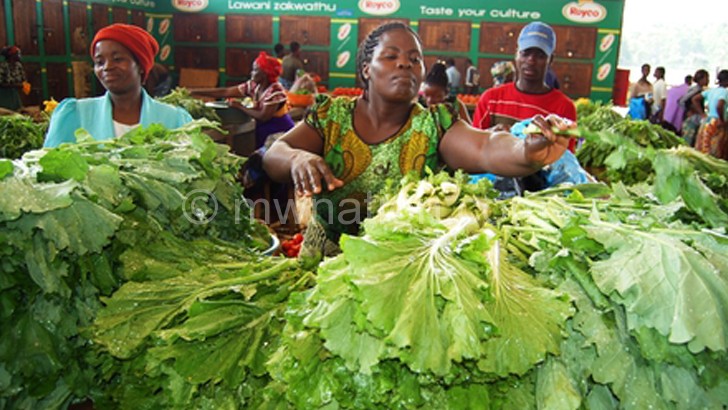Indigenous vegetables market expanding—Luanar
The Lilongwe University of Agriculture and Natural Resources (Luanar) has said the market for indigenous vegetables is expanding as more people become aware of the nutritional value of the crops.
Luanar, through the Capacity Building for Managing Climate Change (Cabmacc) Programme in Malawi, is promoting seed production, conservation and utilisation of indigenous vegetables.
In an interview with Weekend Business, researcher Sibongile Chimzinga said many people are now aware that indigenous vegetables are more nutritious than exotic ones, hence the soaring demand for them.
Chimzinga—who is also deputy head of Horticulture Department—has urged farmers to seize the opportunity and venture into vibrant business enterprises in indigenous seed production.
“With climate change and the changing taste of people, Luanar is overwhelmed with the demand for indigenous vegetable seed from farmers and nongovernmental organisations.
“Indigenous vegetables are easy to grow, need minimal care, do better with little rains and most of them are resistant to most pests and diseases,” she said.
Luanar has since roped in farmers from Mayani in Dedza and Linga in Nkhotakota who are producing indigenous vegetable seed for commercial purposes and the project, according to Chimzinga, has already started improving their livelihoods.
“We gave them an initial capital of seed from our seed bank at Luanar. We also supported them with fertiliser, water cans, hoes and we monitor them to ensure that they produce quality vegetables and seed. We also support them in finding viable markets for their seed,” she said.
The project is also expected to increase farmers’ knowledge and skills in indigenous vegetable seed production, conservation, utilisation and commercialisation.
Under the project, Luanar is encouraging farmers to grow bonongwe, luni, chisoso, mwamunaaligone, chidede, denje, chitambe and others.
Cabmacc is a five-year Government of Malawi programme whose aim is to promote adaptation and mitigation to climate change impacts. The programme, being implemented in specific extension planning areas in Dedza, Phalombe, Blaka, Mzimba and Rumphi, is funded by the Norwegian Government. n






I don’t see indigenous vegetables in the picture for this article. Where’s the bonongwe, luni, mwanuna aligone, mlozi, denje, chisoso, mbilizongwe, boa, limanda, chidede, zumba, kanzota, pwerekere, chikanyanga, mponda, chipwete, etc…?